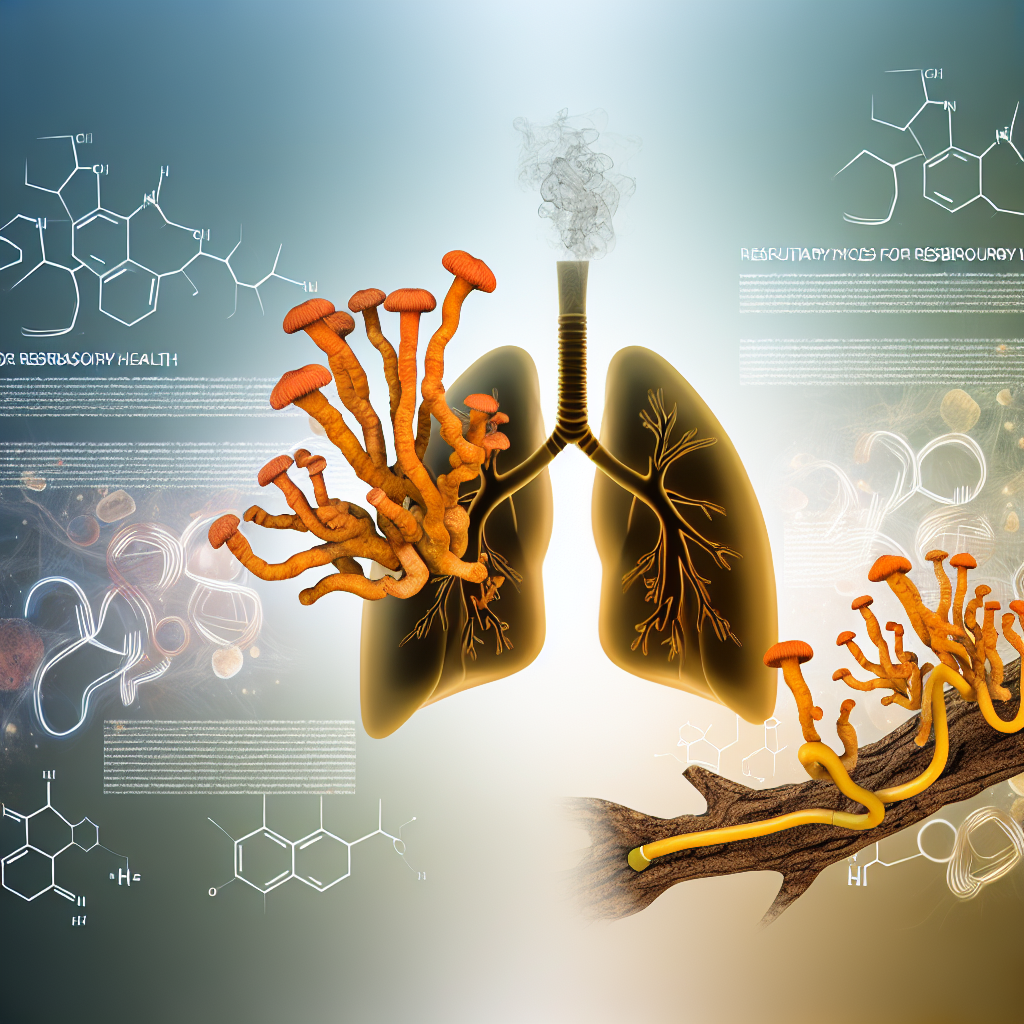Cordyceps for Respiratory Health: An Evidence-Based Review
Introduction
Cordyceps is a remarkable genus of fungi used in traditional Chinese and Tibetan medicine for centuries. The two most well-known species, Cordyceps sinensis and Cordyceps militaris, contain bioactive compounds like cordycepin, adenosine, and polysaccharides that may improve lung function, reduce inflammation, and enhance oxygen utilization.
With the rise of respiratory conditions like asthma, COPD, and viral infections, natural remedies like Cordyceps are gaining attention for their potential therapeutic benefits. This article explores the scientific evidence behind Cordyceps’ role in respiratory health and its impact on lung function.
Cordyceps and Its Role in Oxygen Utilization
Several studies highlight Cordyceps’ ability to improve oxygen efficiency. A study published in High Altitude Medicine & Biology found that elderly individuals who took Cordyceps sinensis experienced enhanced aerobic capacity, likely due to improved oxygen uptake and circulation [(Chen et al., 2010)](https://pubmed.ncbi.nlm.nih.gov/20853923/).
Additionally, research indicates that Cordyceps can enhance VO₂ max—an essential measure of the body’s ability to use oxygen during physical activity. This benefit is particularly useful for athletes and individuals with respiratory issues [(Hirsch et al., 2017)](https://pubmed.ncbi.nlm.nih.gov/28690088/).
Anti-Inflammatory Properties and Lung Health
Chronic inflammation is a significant challenge in respiratory conditions such as asthma and COPD. Cordyceps contains potent anti-inflammatory compounds that help regulate immune responses and reduce inflammation in the airways.
A study in the American Journal of Chinese Medicine found that Cordyceps extract significantly decreased airway inflammation, potentially benefiting individuals with chronic lung diseases [(Ng & Wang, 2005)](https://www.worldscientific.com/doi/10.1142/S0192415X05002782).
Managing Asthma with Cordyceps
Asthma is an inflammatory condition characterized by airway constriction and excessive mucus production. Studies suggest that Cordyceps’ bioactive compounds help alleviate these symptoms.
Research on mice demonstrated that Cordyceps supplementation reduced airway inflammation, decreased mucus secretion, and improved overall respiratory function [(Wong et al., 2018)](https://pubmed.ncbi.nlm.nih.gov/29369175/). These findings indicate that Cordyceps may serve as a natural complementary treatment for asthma.
Boosting Immune Function Against Respiratory Infections
A healthy immune system is crucial in defending against respiratory infections. Studies show that Cordyceps polysaccharides enhance immune cell activity, strengthening the body’s ability to fight respiratory pathogens.
Research published in the Journal of Ethnopharmacology demonstrated that Cordyceps stimulated immune response, supporting its potential in combating conditions like chronic bronchitis, pneumonia, and viral infections [(Yue et al., 2013)](https://pubmed.ncbi.nlm.nih.gov/23340355/).
Conclusion: A Natural Ally for Respiratory Health
Cordyceps stands out as a promising natural remedy for respiratory health. Scientific research supports its ability to enhance oxygen utilization, reduce inflammation, and strengthen immune function.
As an ancient medicinal fungus with modern scientific backing, Cordyceps may be especially beneficial for individuals managing lung conditions or looking to improve overall respiratory efficiency. Whether you’re an athlete, a respiratory patient, or simply aiming to support lung health, Cordyceps could be a valuable addition to your wellness routine.
Summary:
Cordyceps, a traditional Chinese and Tibetan medicinal fungus, has shown promising benefits for respiratory health. Research indicates that its bioactive compounds can enhance oxygen utilization, reduce inflammation, and strengthen the immune system. Cordyceps may be a valuable natural remedy for conditions like asthma, COPD, and respiratory infections, making it a potential ally for those seeking to improve lung function and overall respiratory wellness.

Dominic E. is a passionate filmmaker navigating the exciting intersection of art and science. By day, he delves into the complexities of the human body as a full-time medical writer, meticulously translating intricate medical concepts into accessible and engaging narratives. By night, he explores the boundless realm of cinematic storytelling, crafting narratives that evoke emotion and challenge perspectives. Film Student and Full-time Medical Writer for ContentVendor.com




